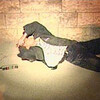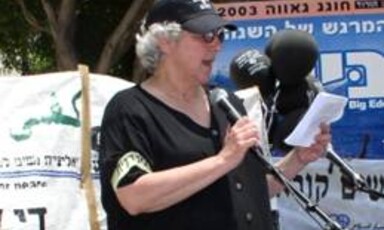“On May 22, at 2 P.M., the lectures and the audience arrived at hall 715 in the university. The doors were locked. In the corridor stood the university’s chief of security forces and ten of his henchmen, all armed with pistols and walkie-talkies. I was pushed into a side room by the chief and his lieutenant and handed a personal letter from the president, Yehuda Hayut. This was done in front of my wife and my colleagues, who watched helplessly as the macabre scene unfolded. Outside the corridor, my wife heard two other lieutenants of the chief informing the president over their walkie-talkies, ‘We caught him!’ They also said to each other, ‘High time! They should do the same to all the leftist lectures in the university!’” Dr. Ilan Pappe, a professor at Haifa University, prevents a chilling account in clinical detail of heavy-handed repression of academic speech at his university. Read more about The President, the Dean, and the Historiography of 1948 Palestine




